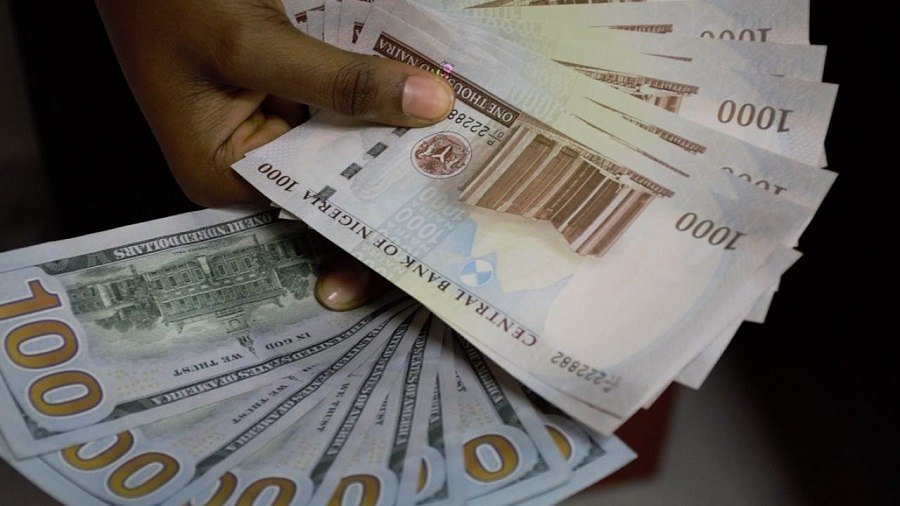Two months after the Central Bank of Nigeria floated the Naira, the country’s currency is still falling precipitously against the dollar, which has made the problems facing Africa’s largest economy even worse.
The country’s currency has continued to decline against the Dollar from June 14 when the CBN liberalised the foreign exchange market, from N750/$1 on the so-called black market to N950/$1 on August 14, 2023.
As the difference between the official window and the parallel market increased to N181, undermining the purpose of the CBN’s floating of the Naira, the situation grew increasingly concerning.
Tumbling Naira: Resolving Nigeria’s Balance Of Payment Deficit
According to analysts with knowledge of the industry, the current investigation of the apex bank by special investigator Jim Obazee, who was appointed by President Bola Ahmed, may have made the Naira’s depreciation worse.
The CBN’s seven-year consolidated financial statements were disclosed last week, and the details revealed a total debt of $7.5 billion to JP Morgan and Goldman Sachs, as well as a $33.88 billion foreign reserve. According to economist Prof. Uche Uwaleke, this is one of the reasons why the currency crisis has persisted.
However, the Acting CBN Governor, Folashodun Shonubi, attributed the problems in the sector to unreported foreign remittances and the uncontrolled parallel market.
As a result, the currency crisis is still having an adverse effect on the nation’s economy, which is heavily dependent on oil.
As an illustration of the rising dollar’s value, oil marketers have hinted at a potential increase in petrol station pricing.
Forex Trading: The Thin Line Between Scam And Business
That would have an impact on the general public who are still adjusting to the fuel increase in July caused by the loss of the petrol subsidy since June.
Aminu Gwadabe, the president of the Association of Bureau De Change Operators of Nigeria (ABCON), stated in an interview with Newsmen on Monday that the recent forex market issue cannot be attributed to the organization’s members.
He attributed this to the existence of illegal online platforms that operate in numerous countries without adhering to a set of norms, capturing remittances from the diaspora but excluding the official market.
He claimed that recent events in the industry had made it even more necessary for CBN members to pick up diaspora remittance agents in order to close loopholes and stop the forex crisis.
“The revelation of the apex bank on diversion of diaspora remittance has vindicated our long-time advocacy to make BDCs pick up agents of diaspora remittances to block the loopholes that the CBN is bringing to the forefront.
Tumbling Naira: Resolving Nigeria’s Balance Of Payment Deficit
“To make diaspora remittance inflows into the official market, the BDCs should be made the sole agents of diaspora remittances and break the monopoly of the agency of the international money transfer operators.
“What we have now is the prevalence of unlicensed online application platforms and fintech that operate in different jurisdictions without standardized regulation capturing diaspora remittances and denying the official market”, he stated.
Additionally, Idakolo Gbolade, the CEO of SD & D Capital Management, claimed that the continuous depreciation of the naira might be related to a decrease in forex inflows into the economy, which has led to a shortage of foreign currency.
He claimed that by promoting higher scarcity for their own advantages and financial gain, large oil firms, institutions, and commercial banks significantly contributed to the FX crisis.
Gbolade asked the government to act quickly to implement measures to stop the sector’s continued decline.
Senate Summons Accountant-general Ahmed Idris Over TSA Remittances
“The Naira’s continuous decline can be mainly attributed to reduced forex inflows into the economy, which has led to the scarcity of foreign currencies and has put pressure on existing reserves. These pressures, combined with our debt obligations, have led to reduced foreign reserves.
“The cooperation of major forex revenue contributors like the oil majors and commercial banks are also suspect because they have encouraged increased arbitrage in the foreign exchange for their benefit and profitability.
“The federal government needs to critically examine the policy and ensure that the CBN monitors the implementation of the policy.
“This uncertainty in this sector has contributed to rising inflation and rising high cost of living,” he stated.
Follow us on Facebook
Post Disclaimer
The opinions, beliefs and viewpoints expressed by the author and forum participants on this website do not necessarily reflect the opinions, beliefs and viewpoints of Anaedo Online or official policies of the Anaedo Online.

